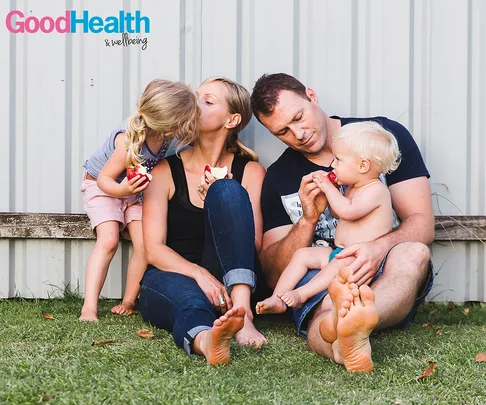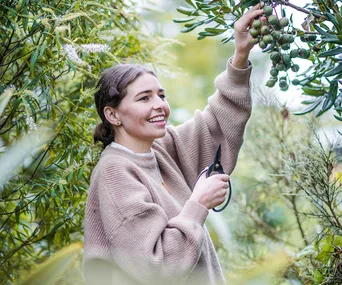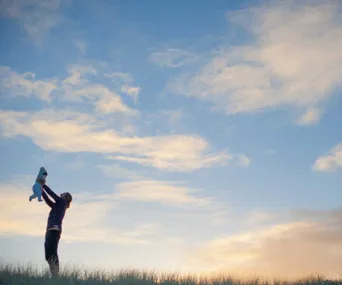After more than 16 years working in the corporate world and becoming an expert in consumer shopping habits, Nicola Turner began a journey that would set her on a very different path.
These days she barely shops at all and she and her family of four are now almost completely waste-free – having significantly reduced their rubbish to just one wheelie bin per year.
It all began when Nicola’s husband started getting dermatitis on his hand. The couple addressed it by decreasing their chemical load, looking at the products they were using, reducing those and simplifying them.
In the process, Nicola realised it was better not only for their wellbeing but also the planet. By being more conscious of what they were consuming, it was creating less waste.
Start small – evolution not revolution
“I started going down that rabbit hole of how we could reduce waste further, and that led to looking at our relationship with stuff. We started learning about minimalism, downsizing and focusing on experiences instead of things. It’s been a journey of small changes over a relatively long time.”
Nicola is now the founder of Mainstream Green, a social enterprise that is passionate about creating consciousness around how we consume, and considers herself a “behaviour changer”.
Looking back, she says her new lifestyle has never felt like a dramatic change or daunting process, but was rather a series of small, easy to implement lifestyle changes.
“It’s been an evolution as opposed to a revolution. It’s not like overnight we said, ‘Hey, that was us and this is us now.’ Working in FMCG (fast-moving consumer goods), there came a point where I started going, ‘My personal values and career values are drifting further apart.’ After coming back from maternity leave with my second child I went, ‘I need to make a change now.'”
For Nicola, the most rewarding part is that life feels simpler and lighter. It’s the little things that make a difference – they don’t put their rubbish out every week, they’re composting and only go food shopping every six to eight weeks now.
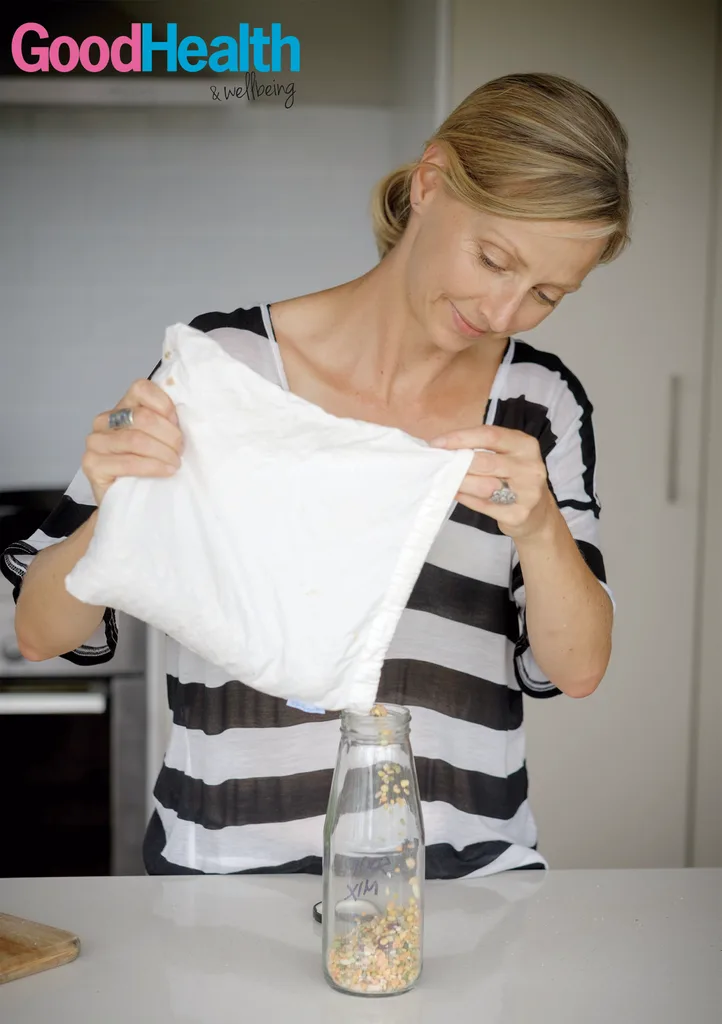
Buying in bulk means that Nicola only goes food shopping every six to eight weeks.
Make positive changes
“The way we live is so much simpler. We have a lot more time to focus on our kids, family and friends. We buy in bulk so we’re saving time and reducing our packaging waste. We have less stuff. There’s an emotional weight with stuff – it feels lighter when we’re not surrounded by clutter. Especially if you’ve got children, there’s less to tidy up. Having a smaller wardrobe means having to do less washing, which saves time, but can also overwhelm in terms of having to deal with an enormous laundry pile. Breaking that desire for consumption has been enlightening, and focusing on experiences over things has been freeing.”
Nicola’s family and friends have come on the journey with them and embraced their lifestyle change, which has made it easier.
“My passion is creating awareness and people finding the right solutions for them. People ask, ‘Have you got a 101 guide on what to do?’ I say no, because it’s a personal journey and it’s about finding solutions that work for you. My daughter had a play date at a friend’s place recently and they had no idea what I did. A couple of weeks later they said, ‘We’re so embarrassed you saw all of our rubbish.’ I said, ‘It’s not about judgement.’ Everybody lives different lifestyles.”
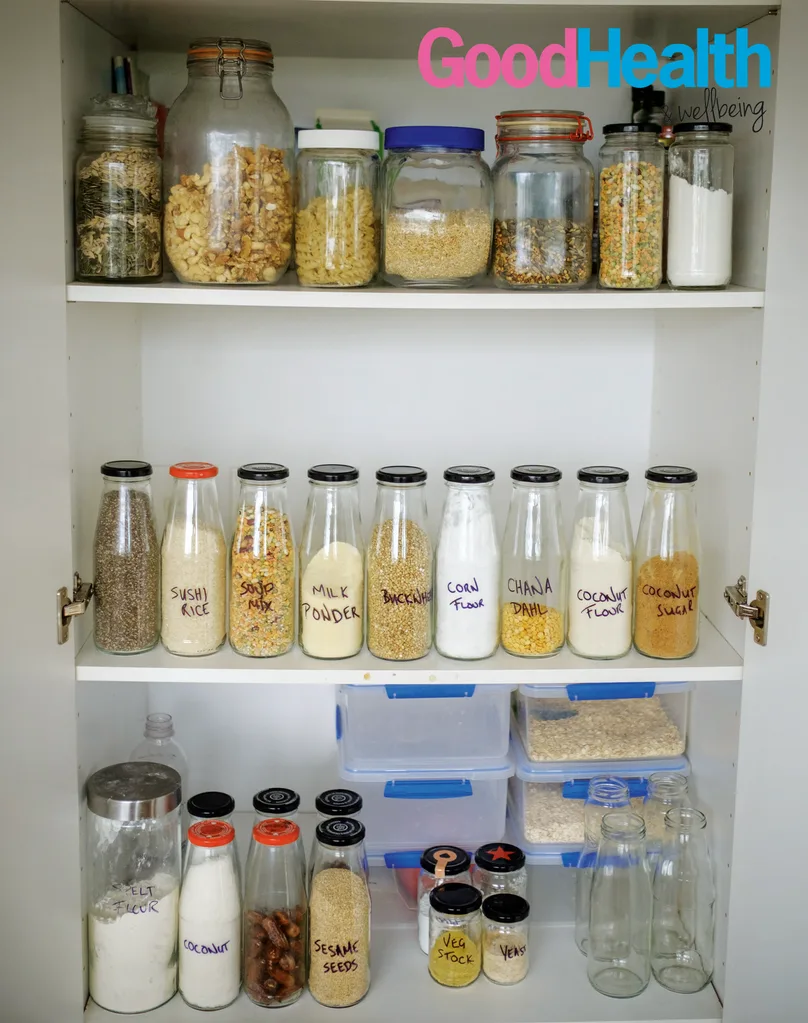
When Nicola tells people she now saves two working weeks of time per year through her savvy shopping methods, it’s met with massive surprise.
“Time’s one of our biggest commodities in the modern-day world, and we strive for convenience. I’m passionate about demystifying convenience. The supermarket’s open seven days a week, 24 hours a day – we can get anything our hearts’ desire. We see that as being convenient, but we end up spending more time shooting out to the supermarket, then more time working to earn money to afford it. We need to question that. By doing experiments of only shopping every eight weeks and saving that time, it’s a great way to prove there are different ways of doing things that can be lighter on the planet, and save you money.”
One of Nicola’s favourite things is taking her own plate when she goes to the sushi shop and seeing all of the positive reactions.
“Without fail there’ll be at least one person in that line who goes, ‘That’s a good idea.’ There’s so much power in normalising these behaviours and that creates the ripple effect of change. If we make it feel accessible to others, they’re more likely to try it. If someone’s seen me buying with a plate they’re like, ‘Oh, the sushi shop is supportive of that, it’s not an out-of-the-ordinary thing to do. Maybe I could do that.'”
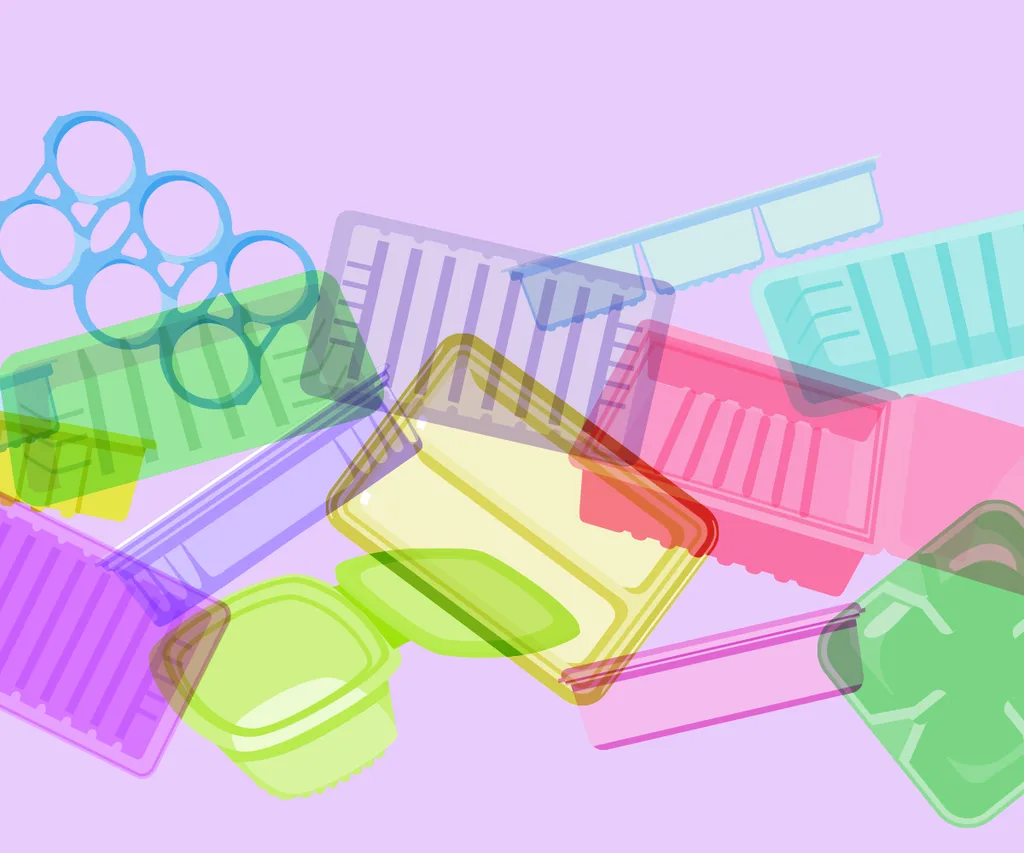
Nicola’s also passionate about an approach she calls ‘gateway behaviour.’
“It starts with one small, easy win and becomes a gateway to other behaviours because you go, ‘That was easy. That makes me feel good, what else can I do?’ Take that micro-pause before you buy. Ask yourself ‘Do I need this? Do I want this?’ If you do, that’s totally cool, but is there another way you can source it? Can you use something you already have? Buy it second-hand? Source it without packaging? Or grow it yourself? Look in your rubbish bin and ask, ‘What’s an easy switch?’ Stand in front of the supermarket shelf and ask, ‘Is there an alternative choice?’ Buying double-length toilet paper halves the plastic packaging, or one that’s made from recycled content or not bleached creates less chemicals.”
She says time, money and generally feeling overwhelmed by it all, are the most common reasons people aren’t changing their lifestyle habits.
“I believe people inherently want to do what’s right. Most people realise the way we’re living is unsustainable, but it’s easy to get overwhelmed, especially with Plastic Free July, the changes in recycling and China not accepting a lot of our plastics. A lot of people are going, ‘Wow, this problem’s so huge, how can one person have an impact?’ People don’t want to compromise their lifestyle or give up perceived convenience. There can be a perception that there’s cost involved, like the stainless steel lunchbox and reusable coffee cup. But at the heart of it, it’s living with less or repurposing what you have. If everybody was more mindful of how they consume and the waste we create, that’s going to create a fundamental shift in the way we behave and be so much better for our wellbeing and the planet.”
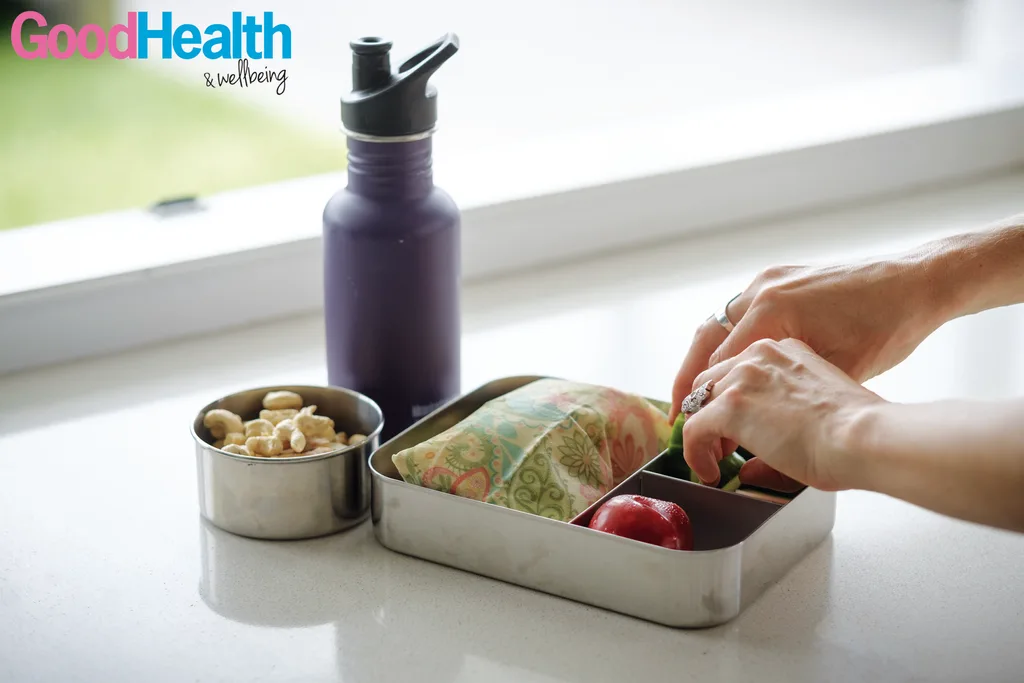
Nicola’s tips to simplify your life
Start with the right mind–set
Before you buy something, ask yourself, ‘Do I really need this? Are there alternatives – can I borrow or buy second-hand?’
Kitchen
Buying everything in bulk from food to cleaning products saves time, money and packaging. Brands such as ecostore have refill stations available so you can reuse packaging.
Using your freezer means you can make the most of seasonal produce and avoid things going off.
When buying takeaway food or coffee take your own containers.
Gifting
Focusing on experiences over things is a great way to spend time together and create memories.
Start traditions – my children get given winter pyjamas every Easter and shoes on their birthday.
Keep a list on your phone of things your kids (or you) really need or want. If you ever get asked you’ve got ideas at the ready.
Wardrobe
Choose quality over quantity. While it’s tempting to buy something cheap, it usually comes at a cost. What the world really doesn’t need is more clothing waste.
Fix what you have – resoling shoes or repairing a tear gives things a second life.
If you find something you love – go home and sleep on it, rather than forking out for it right then and there!
